By Li Peiwei, Consultant for UNICEF China's Education Section
Half an hour's drive from Mile City, Southwest China's Yunnan Province, we were greeted by Fang Fang on her motorbike. The 25-year-old is principal of a kindergarten in Eyi Village, far away from the bustling city. We followed her, winding up some steep roads for over an hour, and finally arrived at a mountaintop kindergarten.
 ©UNICEF/China/2017/Li Peiwei ©UNICEF/China/2017/Li Peiwei
Fang Fang, principal of Eyi Kindergarten in Yunnan Province, stands behind her motorcycle outside the kindergarten. She often rides motorcycle to purchase materials for the kindergarten. |
It is the only kindergarten in the village, and was established single-handedly by Fang Fang. Three years ago, after graduation, Fang Fang came to the village with her boyfriend, who grew up there. She saw children under school age spending their time running around in the fields alongside their parents as they farmed the land, and Fang Fang soon realized there wasn't a single kindergarten to help them learn and develop.
As a concerned and committed young woman, Fang Fang was determined to build a kindergarten for the children of the village, to provide them with quality education and care. But it wasn't easy to turn her dreams into reality.
After a lot of hard work to raise money and resources, and with much excitement, she opened the kindergarten in September 2014 for 11 children. However, faced with a funding shortfall, she realized there were no age-appropriate toys. Fang Fang and other teachers could only build seesaws and climbing frames themselves with iron sheets. Further, the remoteness of the kindergarten meant that the children had to stay there on weekdays, adding to the cost burden. A lack of staffing and low salaries made it extremely difficult to recruit professionally qualified teachers.
In addition, the parents' expectations brought another challenge: they thought good kindergartens were all about teaching literacy and numeracy and demanded that teachers teach in this way. Consequently, the three-year-olds had to deal with the stress of exams and study, or scribble Chinese characters and pinyin (Chinese phonetics) with pens their little hands could scarcely hold.
In 2014, the Ministry of Education (MOE), UNICEF and the local education authorities from five regions in West China jointly launched a pilot programme of Child Friendly Kindergartens (CFKG) for rural areas. The programme aims to help local teachers and parents practice evidence-based Early Childhood Development (ECD) concepts to promote the physical and psychological health and development of children aged 3-6 years through the creation of safe, healthy and inclusive kindergarten environments and the implementation of effective teaching methods.
Fang Fang's Eyi Kindergarten was selected as one of the first pilot kindergartens for the programme. Fang Fang and the teachers received professional trainings, and visited kindergartens in the city to observe classes. Each time upon returning from study tours, she would duplicate the training handouts, distribute them among the other teachers and share her experience; she would also teach other teachers the dances, children's songs and finger exercises she had just learned. Provincial experts and trainers also visit the kindergarten on a regular basis and provide suggestions.
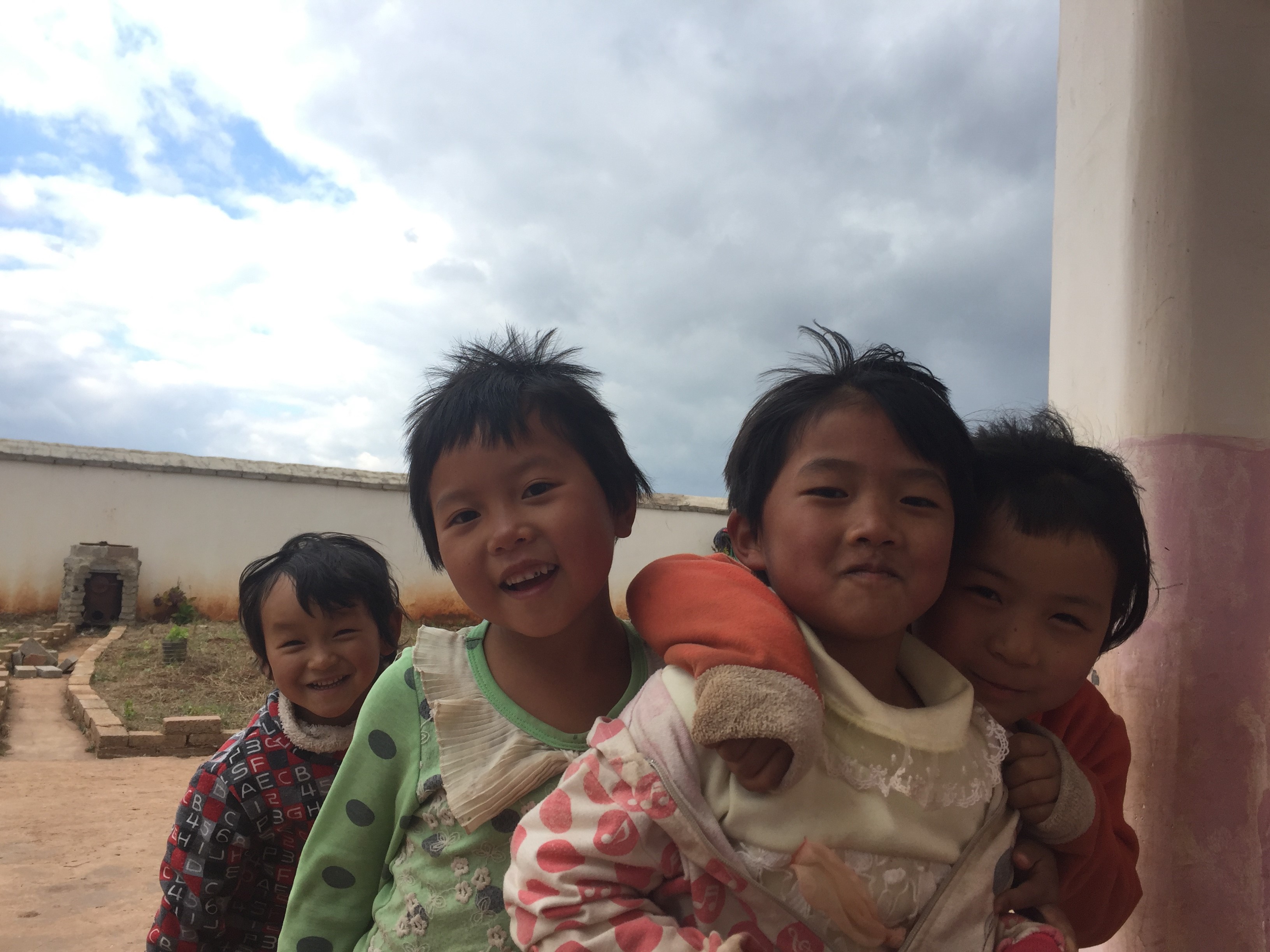 ©UNICEF/China/2017/Li Peiwei ©UNICEF/China/2017/Li Peiwei
Children at Eyi Kindergarten in Yunnan Province pose for photos. |
Fang Fang and other teachers' efforts paid off: the kindergarten has grown and now has nearly 60 children. When we walked into the kindergarten, we were greeted by the cheerful laugher of children. In the yard, children in threes and fours built 'castles' with bamboo pipes, crawled through hurdles, and learned to work as a group. Given the funding shortfalls, the teachers and the children used local resources and waste materials to craft toys, which made outdoor activities more engaging.
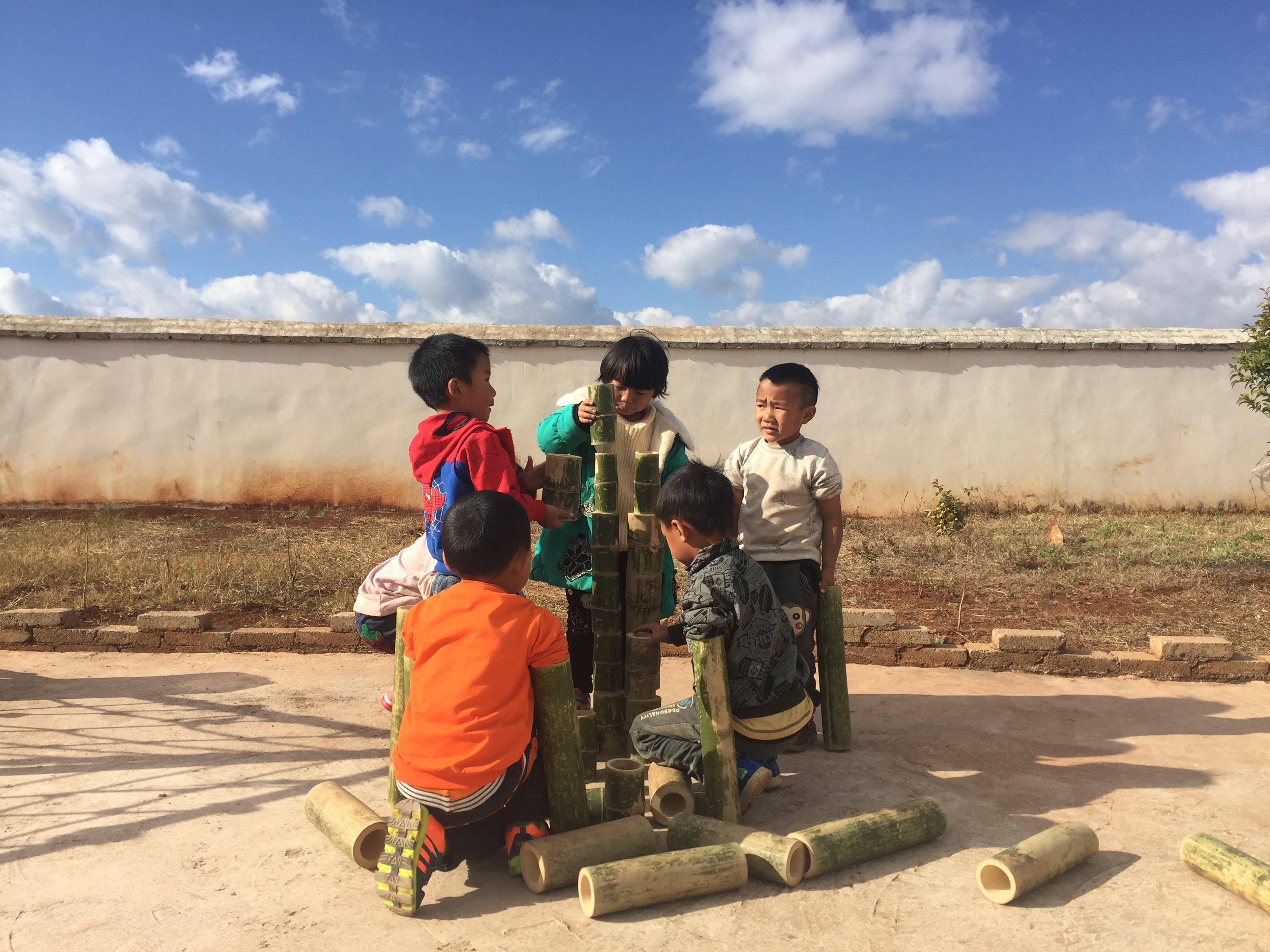 ©UNICEF/China/2017/Li Peiwei ©UNICEF/China/2017/Li Peiwei
Children build a 'castle' with bamboo pipes at Eyi Kindergarten in Yunnan Province.
|
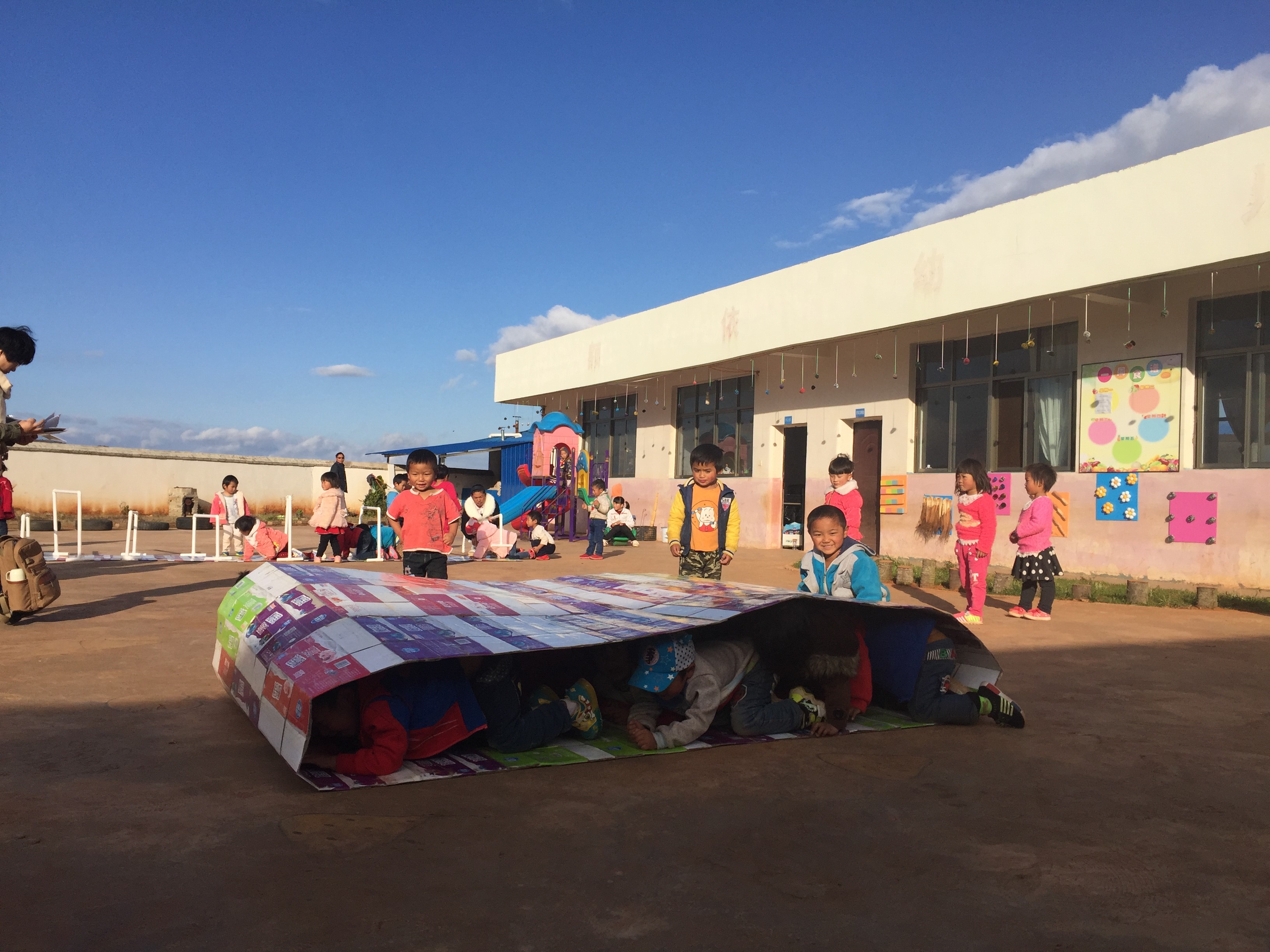 ©UNICEF/China/2017/Li Peiwei ©UNICEF/China/2017/Li Peiwei
Children lie on their stomach within the 'tracks' assembled with carton boxes at Eyi Kindergarten in Yunnan Province. |
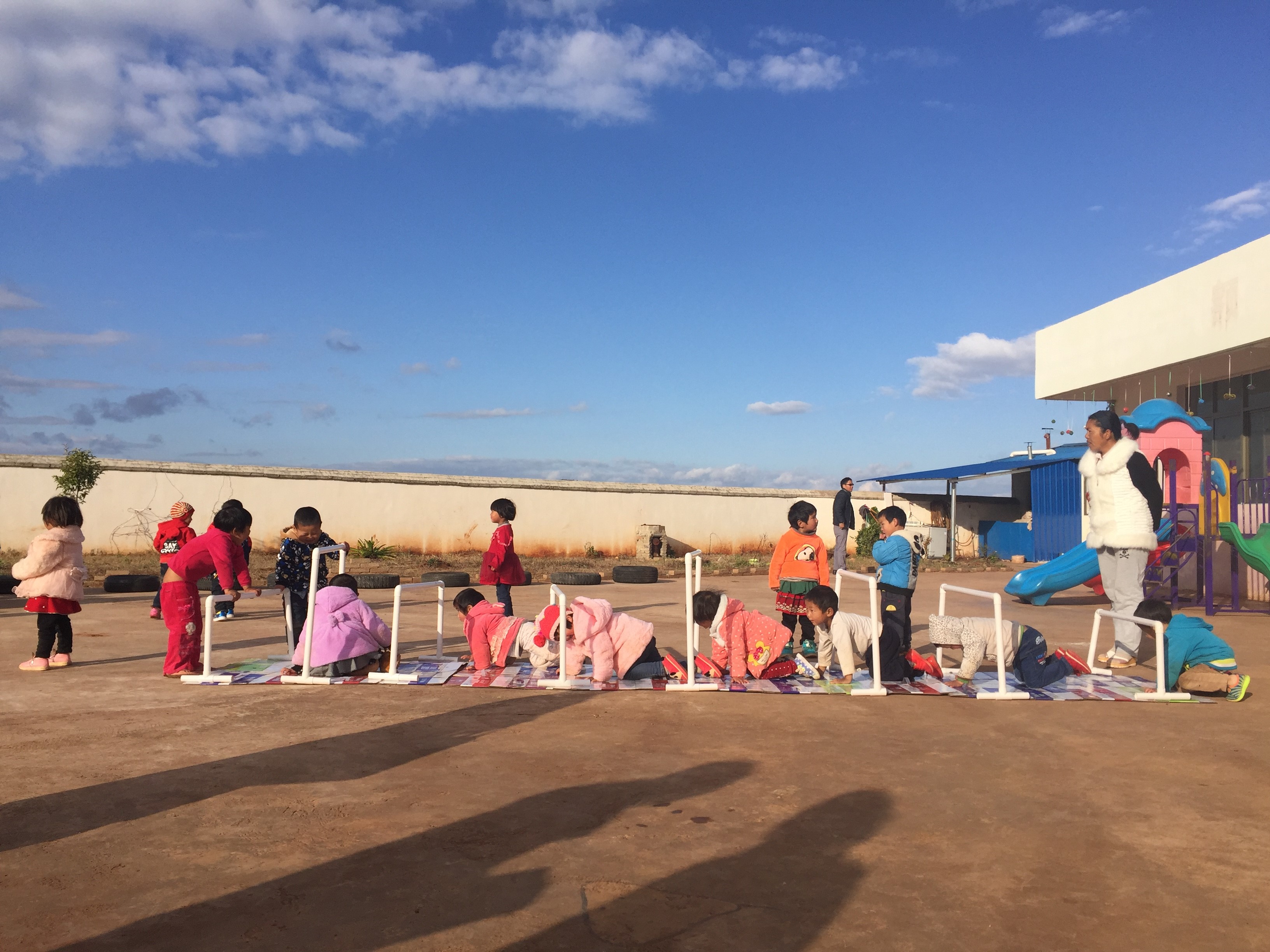 ©UNICEF/China/2017/Li Peiwei ©UNICEF/China/2017/Li Peiwei
Children crawl through hurdles at Eyi Kindergarten in Yunnan Province. |
The programme has instilled the idea of learning through games and environment. The walls of the classrooms are decorated with pinecones painted in multiple colours, and using pieces of bark, corncobs and other local farm produce. While children use those to learn counting, they also get to learn about local produce.
Through games, children are able to comprehend simple mathematics without having to copy the numbers over and over. Inside the classroom, you can find the books and packages of toys provided by the pilot programme, as well as the children's artwork. It became a wonderland for children, where they can gain knowledge through play.
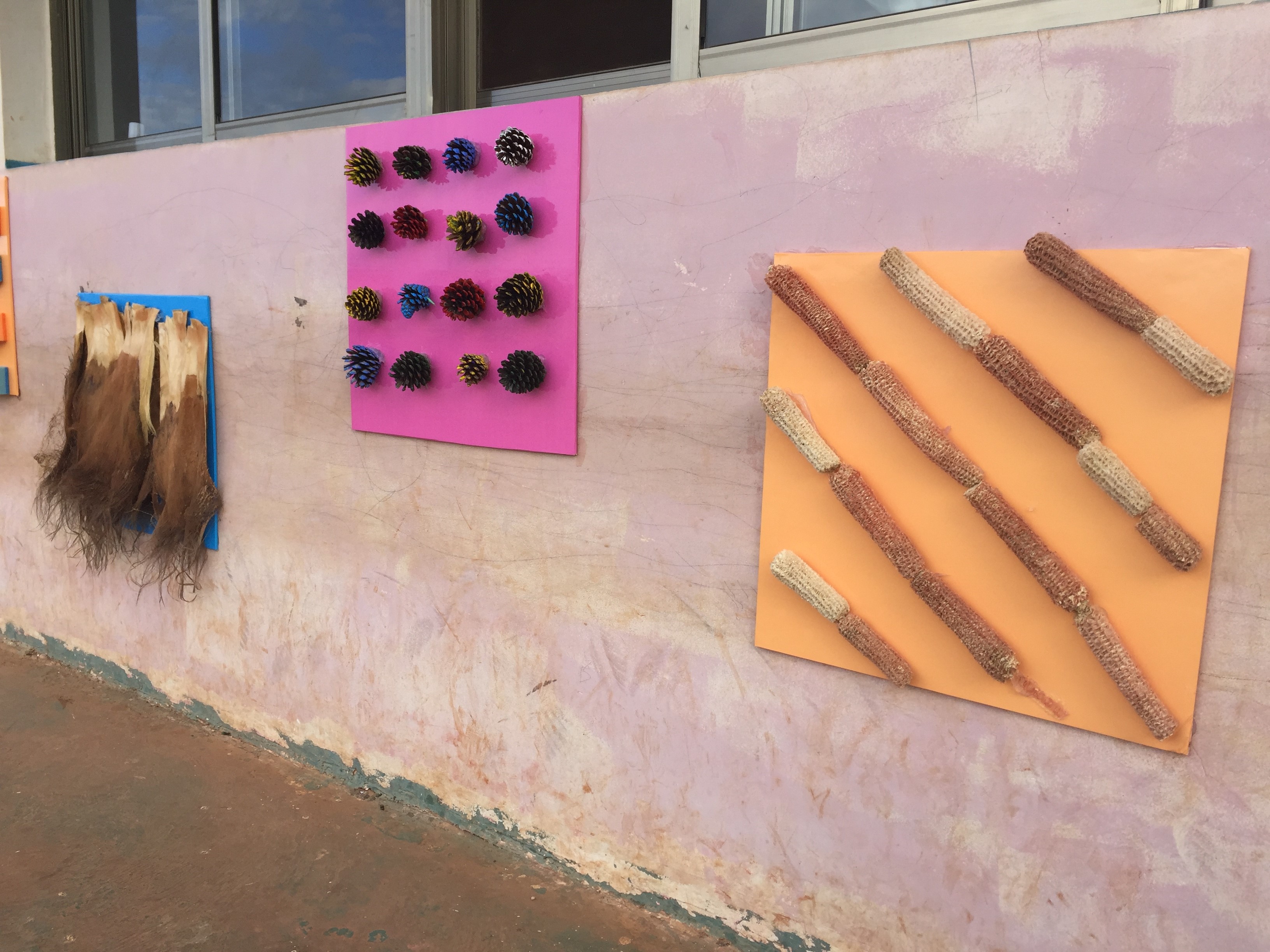 ©UNICEF/China/2017/Li Peiwei ©UNICEF/China/2017/Li Peiwei
Classroom external wall at E Yi Kindergarten in Xi'er Town, Mile City, Honghe Prefecture, Yunnan |
By the end of 2016, in Mile City alone, 308 teachers from 40 pilot kindergartens had received training under the programme, benefiting more than 7,000 children.
In the poverty-stricken regions, the lack of human resources still remains a pressing challenge for the development of pre-school education.
“I have no idea how long I can still hold onto it. I cannot imagine what will happen to these lovely children if I were to give up,” Fang Fang thought for a moment. “Recalling what drove me to build the kindergarten and everyone's support, I'm going to try my best to keep it running.”


































